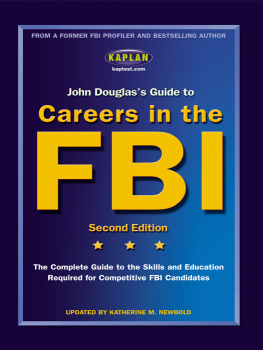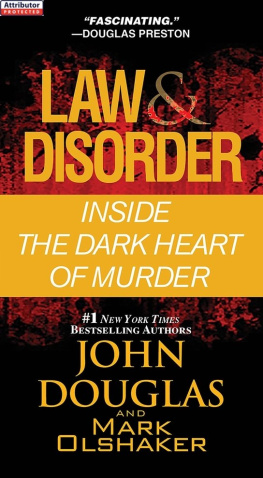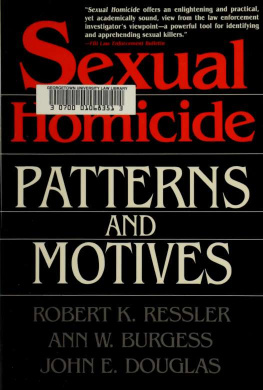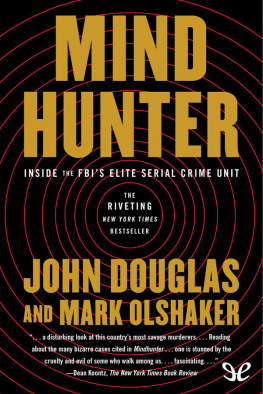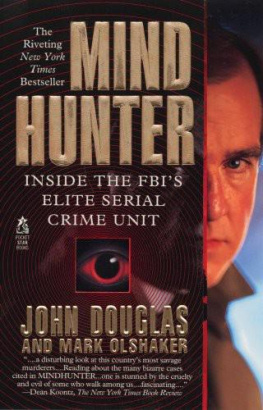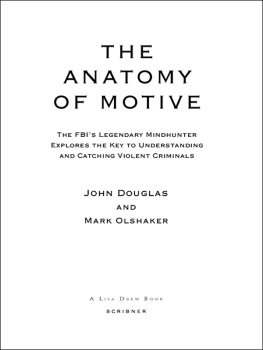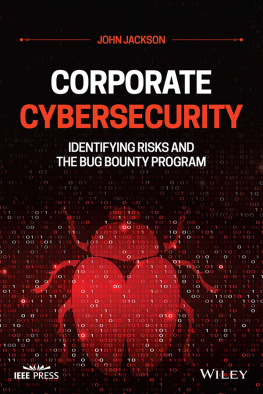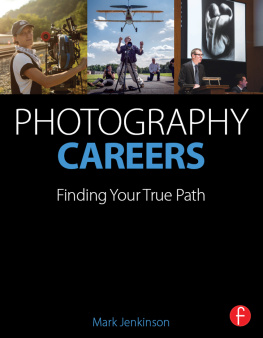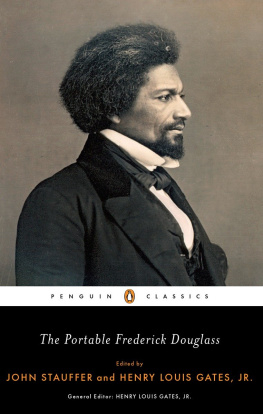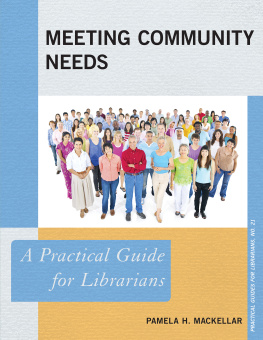Related Kaplan Titles
John Douglass Guide to the Police Exam, Second Edition
John Douglass Guide to the California Police Exam
Guide to Careers in the FBI
Second Edition
by John Douglas

CONTENTS
Best Work In
Law Enforcement
You are going to get a lot of just-the-facts-maam information in this book. You are also going to get a look at just what its like to be a member of what I consider the finest investigative agency in the world. The information here comes from the Bureau itself and from the expertsformer FBI Special Agents.
This book differs from most career planning guides. This is about a passion that was my career for over 25 years and about what I consider to be the best work in law enforcement. Included are facts and solid advice to help you evaluate your edge as a competitive candidate for a career in the Federal Bureau of Investigvation, both in sworn positions and in the numerous professional positions tied to the FBI mission.
Even the most casual follower of current events is aware of the changes that have affected law enforcement since the September 11 attacks in 2001. The FBI now has an even more extraordinary presence overseas involving investigators, Evidence Response Teams, Bomb and Explosive Experts, and Forensic Scientists in both the physical and behavioral fields. Critical Incident Response Teams, Hostage Resuce and Swat Teams, Cyberspace Experts, and Language Specialists also make up the nuts and bolts of the FBIfield investigators and analysts present only a glimpse at FBI opportunities. Just remember, the ever-changing mission, the fast pace, and the unbreakable camaraderie make the FBI a very gratifying career.
The Bureau has come a very long way since my Entered-onDuty (EOD in Bureau-ese) in the late 60s. Then, the Bureau recruited only men for its Special Agent position, and it referred to other in-house professionals as support staff. But the Bureau is a microcosm of society and has adjusted accordingly. The organization has made a large effort to change the composition of its workforce and to respect and recognize the contributions of all FBI personnel. In 1972, the Bureau began appointing women to agent positions, and they have been a vital presence ever since. Through the years, the Bureau has also changed with respect to technology and investigative response capability.
This book will give you insight into the extensive history behind the FBI. You will learn about the hierarcy within the organization, and read in detail about the myriad of task forces and programs the FBI takes part in every day. Each chapter is peppered with first-hand accounts of on-the-job experiences by former Special Agents.
You will then find out exactly what a career with the FBI entails, and precisely the types of candidates the Bureau looks for.We will walk together through the application process. By the time you have finished reading, I am sure you will have an idea whether or not a career with the FBI is right for you.
FIRST-HAND ACCOUNTS
Before we begin our adventure, I want you to read some of the first-hand stories from individuals I respect both personally and professionally. They are designed to assist you in honestly evaluating both the career and the application process. These people represent the heart and expertise of the FBI. Perhaps you will recognize yourself in their backgrounds and stories. Through their experiences, you will discover the range of opportunities available with the FBI and a walk in my shoes candor as presented in no other text. The FBI is clearly about making important contributions on a transnational stage. Many FBI colleagues have often said where else can I get paid for doing this?
Im giving you their stories here for two reasons. First, youll see a range of the career opportunities open to you as a Special Agent of the FBI. Second, I want you to get to know the men and women I interviewed, because theyre the ones who are going to let you walk in their shoes.
THE AUTHOR
Some of you might know my story already from reading Mindhunter. But for those of you who dont, here is the condensed version.
I grew up in Hempstead, Long Island. I never had any idea Id become an FBI Agent; I didnt even know how to spell FBI. My big ambition was to be a veterinarian. For three summers while I was in high school, I went up to Ithaca, New York, and worked for the Cornell Extension Service. So while my buddies were out playing in the sun at Jones Beach, I was shoveling cow manure.
When it came time to apply for college, I sent off my scores and my grades to Cornell, and they wrote back a very nice letter thanking me for my interest and suggesting that maybe Cornell wasnt the right place for me. They said I might be better off at another fine academic institution: Montana State University.
So I packed up and headed out west to Montana, where the men are men and the sheep are nervous. I spent a few semesters there, diligently working on my extracurricular activities. When I bombed out of MSU, I went home to Long Island for a while, then joined the Air Force.
While I was in the Air Force, I finally started getting my act together. I did some volunteer work with mentally disabled kids, and found that to be tremendously rewarding. I was stationed in New Mexico then, and decided Id get a degree in education. I started taking classes at Eastern New Mexico University, fondly referred to by its students and alumni as Enema U.
Id met an FBI agent at the gym we both went to, and shortly after I got my degree, he suggested I apply to the Bureau. I still had no burning interest in law enforcement, but this guy seemed to be doing okay. He was making a nice salary, while I was scraping by and living in a basement apartment that was more like a glorified Roach Motel. So I applied, and I got in.
I fell in love with the work. After a few years in the Bureau, I ended up in the Behavioral Sciences unit, analyzing the why to develop ways of finding out the who behind the most brutal crimes. More and more, I kept thinking that we were missing something basic. We had all these ideas about criminal thinking, but they were really just speculation from the outside. I felt we needed to talk to the criminals themselves to get the real story. After all, theyre the real experts.
Now, as you will read in Doug Rhoadss story, this was a time when the first thing a new agent was told was Dont screw up. That fear of embarrassing the Bureau sometimes translated into a fear of trying anything new, so I had a hard time getting anyone to listen to me.
By 1978, I was giving classes with the Bureaus road school for police officers around the country. One day, a colleague and I were on the road in California. We had some time on our hands and I said, Lets see if theres anyone we can talk to near here. There was: serial killer Ed Kemper.
Kemper was Californias Co-Ed Killer. Like most violent criminals, hed had a troubled childhood. He never got along with his mother, who didnt like him because he looked like his father. His favorite game as a young child was to have his sister tie him up so he could pretend he was dying in a gas chamber. Later, he killed and mutilated the familys two cats. Finally, his mother sent him to live with his grandparents, who lived in northern California.
One day, when Ed was 14, he got irritated with his grandmother. He shot her and stabbed her over and over again with a kitchen knife. He figured his grandfather wouldnt be happy when he discovered what had happened, so Ed shot him too. Kemper told the cops, I just wondered how it would feel to shoot Grandma. He was sent to a mental hospital, but released when he turned 21.
Next page
